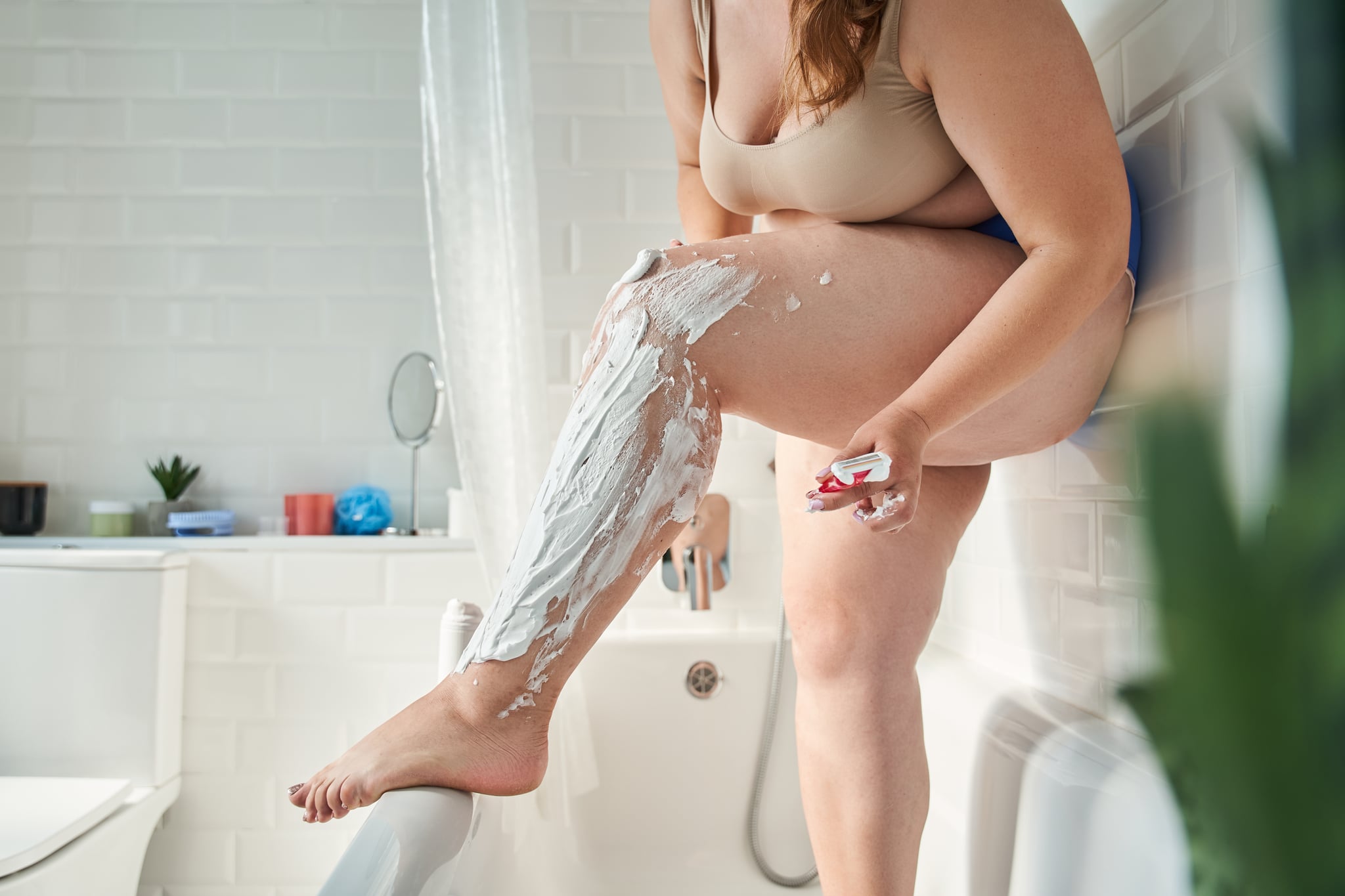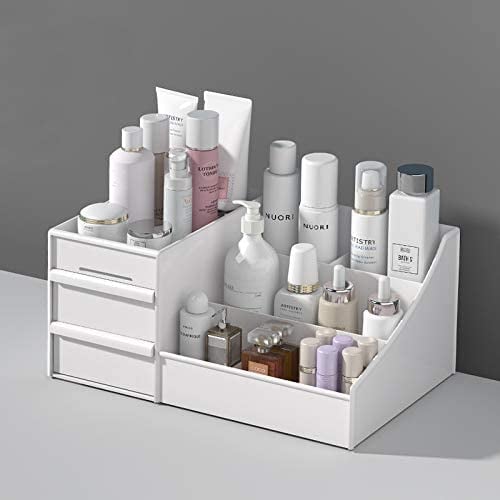Tips For Building a Beauty Routine When You Have ADHD
I Have ADHD, and Maintaining a Beauty Routine Used to Feel Impossible
As POPSUGAR editors, we independently select and write about stuff we love and think you'll like too. If you buy a product we have recommended, we may receive affiliate commission, which in turn supports our work.

My first instinct when my girlfriend gets really close to my face is to kiss her. Instead, I give in to my much stronger instinct to pull away — not because I don't want to kiss her, but because I remembered I'd forgotten to brush my teeth. I worried that kissing the lips I couldn't bring myself to exfoliate and moisturise would feel like kissing sandpaper for her. I was afraid she'd take one look at my greasy, unwashed hair brushed back into a bun for the fifth day in a row and move out. I felt embarrassed, ashamed, and frustrated not just that I couldn't keep a consistent personal-care routine, but that it was affecting my relationship, too. I still do sometimes.
Because ADHD is a neurodevelopmental disorder you're born with, I've struggled with maintaining any kind of routine, and the resulting insecurities, ever since I can remember — long before I finally received a formal ADHD Combined Type diagnosis at 27. Living with ADHD looks different from person to person, but for me, the real-life implications range from silly, goofy quirks to debilitating symptoms that wreak extreme havoc on my life. On one hand, my ability to hyperfocus has made me a sort of Jane of all trades whose productivity during stressful periods and tight timelines is masterful. On the other hand, my aversion to any activity I deem "mundane" — like brushing my teeth, applying moisturiser, or taking long showers — has repercussions much harsher than feeling bad about myself, like painful, expensive dental work, perpetually dry, inflamed, irritated skin, and stubborn body acne.
As should be the case with any kind, supportive partner, my girlfriend's love doesn't come with superficial stipulations; she's never once commented on or fuelled my embarrassment over anything related to my ADHD. That doesn't mean my insecurities about struggling to maintain a beauty routine lay dormant. They ebb and flow, quieted when I'm chasing a new avenue for dopamine and raging as I lie in bed for hours, overwhelmed by ADHD paralysis and the internal stream of insults I sling at myself for not brushing circles around my incisors for two measly minutes.
Then, there's the crushing feeling of isolation — as if each insecurity and failed attempt at a new routine is a new wall separating you from everyone else. Never mind social media: the omnipresent reminder that everyone in the whole world except you is (seemingly) perfect.
The thing is, I'm not alone.
"When I started seeing some friends after the lockdown was lifted, I felt so embarrassed because I wasn't one of the people who worked out every day and 'bettered' myself during lockdown," says makeup artist Steffanie Strazzere, who was diagnosed with ADHD in primary school. "Like many others, my mental health had been suffering tremendously, and I was just trying to get by. It made me feel incredibly insecure about myself."
"When I started seeing some friends after the lockdown was lifted, I felt so embarrassed because I wasn't one of the people who worked out every day and 'bettered' myself during lockdown."
This type of struggle with beauty and personal-care routines isn't out of the ordinary for many people with ADHD. As I began to work on this story, I was only further reminded of this. Within five minutes of posting a request to chat with any of my Instagram followers with ADHD who struggle with personal-care routines, a steady flow of responses poured in with the same "you, too?!" tone, all describing variations of similar, frustrating experiences.
For days, Kate Rice couldn't find the motivation to brush her hair, which would eventually mat up in clumps that soon turned unmanageable. "I dismissed it as being a lazy teenager at the time, but I still struggle with it nearly a decade later," she says. "I just have this switch inside of me that just gets stuck on 'off' sometimes, and no matter how hard I try to switch it back, I can't."
For Genevieve Wheeler, trying to develop a consistent skin-care routine was an uphill battle — one that grew more and more costly over time. "Once I had more disposable income, I obsessively scoured Reddit threads in search of answers and miracle products," she said. "At that point, I'd jump from expensive product to expensive product, filling my bathroom cabinet with half-used bottles and never giving anything enough time to set in."
How to Know If Your ADHD Is Impacting Your Beauty Routine
"It can be easy for the individual [with ADHD] to get distracted and not finish tasks to completion," Sandy Skotnicki, MD, board-certified dermatologist, tells POPSUGAR.
Someone with ADHD may struggle with personal-care routines even when they acknowledge their importance and how it relates to overall health.
This isn't due to any disregard for the value of personal care. "Someone with ADHD may struggle with personal-care routines even when they acknowledge their importance and how it relates to overall health," says Meghan Marcum, chief psychologist at AMFM Healthcare. "The problem is not the lack of understanding; it's the fact that, sometimes, ADHD symptoms get in the way of successfully completing routines."
Rather, it can be chalked up to a number of ADHD-related symptoms and characteristics, like an "out of sight, out of mind" mentality as Skotnicki mentions; a tendency to be easily distracted; impulsivity; or the fact these types of activities, which often have little immediate reward, don't always satisfy a dopamine-hungry brain. In the case of Julia Rosenthal, that can look like buying beauty products only to "use them for four days, stop using them, and buy new products for a new routine two weeks later."
Those with ADHD also tend to have difficulty with executive function, or things like planning, decision-making, task initiation, organisation, and pursuit of goals. And for some, if the immediate stakes aren't high enough (think: imminent danger, a looming deadline, failure, significant reward), neither is the motivation to do the routine in the first place.
For those with ADHD, the road to finding and keeping a consistent beauty routine is long and riddled with trial and error. However, rejiggering your beauty routine to work with your ADHD makes the path less complicated. In the end, yours might look different than a celebrity's luxurious 50-step ritual. But that's far less important than settling on a routine you can do — and feel good about — consistently.
How to Form and Maintain a Beauty Routine When You Have ADHD
Tip 1: Keep It Simple
Lengthy skin-care or makeup routines work for some, but it's easy to get lost in so many steps, and, as most people with ADHD know, the sub-steps that come with each. "There is not much science behind the benefits of a 10-step facial regimen, so keep it simple and down to just the basics. It is more about self-care than skin care," says Skotnicki. This also cuts the amount of time required to finish it and limits the opportunity for distraction.
"What works for me is simplifying the routine to just a cleanser, toner, serum, and moisturiser," says Rosenthal. "When I try to add more is when I fully lose control of the routine." That said, if piecing together single products feels confusing, try taking the guesswork out of it with a preset routine for your skin type.
Tip 2: Number Your Products or List Out Your Steps
If you have trouble remembering every step or the best order in which to do them, Marcum suggests making it easier on yourself with visible cues with lists, numbers, or colours — a method Strazzere has found success with. "I numbered the products in which order I use them, depending on day or night, and they all live in one drawer together," she says.
Sample sizes are good options to start with because it's less of an investment, or a loss, if you decide these products aren't right for you.
Tip 3: Keep Your Products and Tools Where You Can See Them
Tucking my personal-care and skin-care products away in a cabinet saves counter space, sure. But if I can't see them as a visual reminder of my routine, they might as well not exist. "Creating a simple routine in which all of the steps and products required to complete the routine are laid out can help to make your routine more manageable," says Skotnicki. "A nice, decorative tray on your bathroom counter that houses the products you need to use daily can be beneficial." A skin-care organiser like the Sitake Makeup Organiser Storage Box (£20) has different shelves and drawers to separate your products.
Tip 4: Use Reminders to Your Advantage
Trying to hack my "out of sight, out of mind" default very quickly backfired. Soon enough, deodorants, razors, and skin-care tubs covered every inch of my sink, and instead of using any of the products staring me in the face, I was frozen and discouraged by indecision over where to start and which products I needed to use that day.
Ultimately, each of your visible products should have a clear place to which you return it once you're finished. When it comes to the products you know you need every now and then — like razors or masks — you don't need to squeeze those into your visible product lineup. Instead, both experts suggest setting an alarm or reminder on your calendar for the times you need to incorporate those items into your routine and even to remind you to start routines in the first place. "Schedule 10-15 minutes of uninterrupted time to devote to the routine, and plan for times when you're less likely to be distracted," says Marcum. "Setting a timer for the same time each day helps create consistency, which reinforces the routine."
Tip 5: Body Doubling Can Be Surprisingly Helpful
A major game changer for both me and Strazzere is body doubling, a less-talked-about tactic for managing ADHD that involves having another person with you as you complete a task. They can be working alongside you or just present in the room, but strangely enough, their mere presence can help keep you focussed in the moment. Not to mention, "It wasn't until my partner and I started doing our skin care together every night that it really began to motivate me to start being more consistent with it," she says.
Tip 6: Know Your Strengths and Weaknesses
For Rice, thinking realistically about her limits was the ultimate key to a manageable, consistent personal-care routine. Persistent trouble maintaining her hair meant cutting it to a length that was easier to deal with. Daunting skin-care routines signalled a need for her to cut them down further. "I think it's important to recognise that just because you can't always act the exact same as someone without ADHD doesn't mean you're below them," she says. "You just need to know what you can expect of yourself."
In Wheeler's case, that looked like asking for help instead of trying to manage everything on her own. Just before she was diagnosed with ADHD, she sought out a dermatologist to help her decide on the right skin-care products. Now, she also receives regular clinical treatment for ADHD, too, which she says has made sticking to her routine easier and "much more grounding."
Tip 7: Cut Yourself Some Slack
The vitriol I'd lodge at myself over something as dumb as forgetting to shave for a while? Hugely unhelpful. (Seriously, not a single one of those negative thoughts picked up a razor and shaved my legs for me.) What did eventually help was, shockingly, being more encouraging and nicer to myself, especially during those more difficult moments.
"If someone with a physical disability needed extra time to get their routine completed, how would you respond? Use similar compassion with yourself," says Marcum. "There will be days that are more challenging than others, and the goal should be to simply do the best you can. Celebrate the days you are successful, and don't spend energy comparing yourself to other people."








